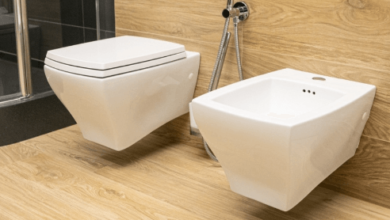Key Factors to Consider Before Installing Solar Power in Your Home

Solar power is a renewable energy source that is becoming increasingly popular among homeowners. Installing solar panels on your property can not only help you reduce your carbon footprint but also save you money in the long run. However, before making the decision to go solar, there are several key factors that you should consider to ensure that it is the right choice for your home. In this article, we will discuss some of the most important factors to keep in mind when thinking about installing solar power in your home.
1. Location and Sunlight Availability
One of the primary factors to consider before installing solar power in your home is your location and the amount of sunlight your property receives. Solar panels require sunlight to generate electricity, so it is essential to assess whether your location gets an adequate amount of sunlight throughout the year. Homes that are shaded by trees or tall buildings may not be suitable for solar panel installation.
2. Roof Suitability and Space
The condition and angle of your roof are crucial considerations when installing solar panels. Ideally, your roof should be in good condition and have enough space to accommodate the solar panels. The angle of your roof also plays a role in the efficiency of solar energy generation. A south-facing roof with a slope between 15 and 40 degrees is typically considered ideal for solar panel installation.
A south-facing roof with a slope between 15 and 40 degrees is considered ideal for solar panel installation because it receives maximum sunlight exposure throughout the day. This optimal angle allows the solar panels to capture the most sunlight and generate the maximum amount of electricity.
Additionally, a roof in good condition is essential to ensure the longevity and effectiveness of the solar panel system. Proper installation on a structurally sound roof will help prevent any issues related to leaks or damage. Before installing solar panels, it is recommended to have a professional solar installer assess your roof to determine if it meets the necessary criteria for a successful solar energy system.
Read also: What technological innovations are driving the future of smart homes and connected devices?
3. Energy Usage and Cost Savings
Before investing in solar power, it is important to analyze your household’s energy usage patterns. Understanding how much electricity you consume on average can help you determine the size of the solar power system you need. Additionally, consider your current electricity costs and calculate the potential savings that solar power can offer over the long term. In many cases, installing solar panels can lead to significant cost savings on your energy bills.
By analyzing your energy usage patterns, you can identify the peak times when you consume the most electricity, allowing you to size your solar power system accordingly. This information can also help you decide whether to opt for a grid-tied system, a battery storage system, or a combination of both.
Furthermore, understanding your current electricity costs is essential in evaluating the financial benefits of investing in solar power. By calculating the potential savings over the lifespan of the solar panels, you can determine the return on investment and assess whether it makes financial sense for your household.
In addition to cost savings, installing solar panels can also increase the value of your property and reduce your carbon footprint. Many homeowners find that investing in solar power not only reduces their energy bills but also contributes to a more sustainable and environmentally friendly lifestyle.
Before making the decision to invest in solar power, it is advisable to consult with a reputable solar energy provider to assess your energy needs, evaluate your property for solar suitability, and receive a customized quote for the installation. With careful planning and analysis, solar power can be a smart and cost-effective investment for your household.
4. Available Incentives and Rebates
Governments and utility companies often provide incentives and rebates to encourage homeowners to switch to solar power. Before installing solar panels, research the incentives available in your area, such as tax credits, rebates, and net metering programs. These incentives can help offset the initial cost of installation and make solar power more affordable for homeowners.
In addition to financial incentives, switching to solar power can also have long-term benefits such as lower electricity bills, increased property value, and a reduced carbon footprint. Researching and taking advantage of the incentives and rebates available can make the transition to solar power a smart investment for homeowners looking to save money and help the environment.
5. Maintenance and Warranties
Like any other investment, solar panels require regular maintenance to ensure optimal performance. Before installing solar power in your home, consider the maintenance requirements of the system, such as cleaning the panels and checking for any damage. Additionally, inquire about the warranties offered by the solar panel manufacturer and installer to protect your investment in case of any issues.
6. Environmental Impact
One of the key benefits of solar power is its positive impact on the environment. By harnessing energy from the sun, solar panels help reduce greenhouse gas emissions and reliance on fossil fuels. Before installing solar power in your home, consider the environmental benefits of generating clean, renewable energy and contributing to a more sustainable future for the planet.
7. Consultation with Solar Experts
Finally, before making a final decision on installing solar power in your home, it is advisable to consult with solar energy experts or installers. They can assess your property, provide recommendations on the best solar power system for your needs, and offer valuable insights into the installation process. By seeking professional advice, you can ensure that the solar power system is tailored to your specific requirements and installed correctly.
Conclusion
Installing solar power in your home can be a rewarding investment that offers long-term benefits for both your finances and the environment. By considering factors such as your location, roof suitability, energy usage, incentives, maintenance, environmental impact, and seeking advice from solar experts, you can make an informed decision about whether solar power is the right choice for your home. Take the time to research and evaluate these key factors to ensure a successful transition to clean, renewable energy through solar power.



